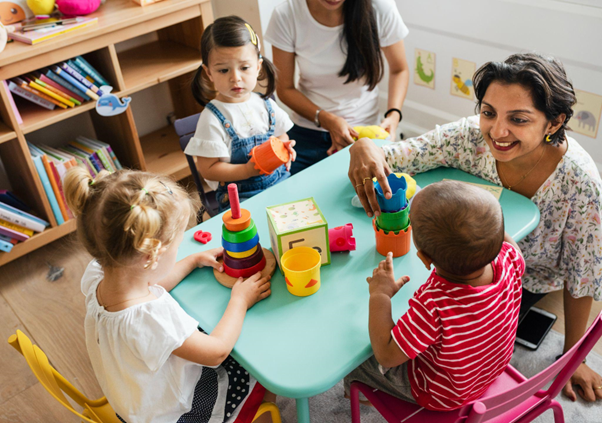Building open communication channels with your children lays the foundation for understanding, trust, and support. As children grow, the topics of conversation should evolve to address the various aspects of their lives. An open and trusting relationship is crucial before engaging in specific conversations. Let’s examine the ten most crucial talks that parents need to have with their kids.
Talk 1: Understanding Emotions
It is extremely important to help your children navigate the complex world of emotions. Talk about the importance of emotional intelligence and educate them on how to recognize and control their emotions. You can share personal experiences to provide a safe space for them to express themselves.
Talk 2: Online Safety and Cyberbullying
In an age dominated by technology, it is crucial to address online safety. Discuss the potential risks of the digital world and provide practical tips for staying safe online, including recognising and handling cyberbullying.
Talk 3: Peer Pressure and Decision-Making
In this age, peer pressure becomes a significant influence. Guide them in making decisions aligned with their values and encourage responsible decision-making.
Talk 4: Healthy Relationships
Discuss the fundamentals of healthy relationships, emphasising mutual respect and communication. Help them recognise signs of unhealthy relationships and provide support when needed.
Talk 5: Substance Abuse and Addiction
Raise awareness about the risks of substance abuse. Approach this talk with sensitivity, focusing on education rather than judgement, and create an environment where they feel comfortable discussing these topics.
Talk 6: Career and Future Planning
Guide your children in exploring various career options and help them set realistic goals for the future. Encourage them to pursue their passions while providing practical advice on navigating the professional world.
Talk 7: Cultural Diversity and Inclusion
Foster an understanding of cultural diversity and promote inclusivity. Teach your children to embrace differences and cultivate a sense of empathy and acceptance.
Talk 8: Using Social Media Responsibly
In the age of social media, it is critical to discuss ethical online conduct. Instruct your kids to use social media with awareness, emphasising the value of personal space as well as responsible sharing.
Talk 9: Mental Health Awareness:
Raise awareness of mental health issues by engaging in conversations about stress management, emotions, and the value of seeking help when they need it. Establish a nurturing atmosphere where your kids can freely express their emotions.
Talk 10: Academic Challenges and Goal Setting
Talk to your kids about the difficulties they have in school and help them to overcome the obstacles. Encourage goal-setting to promote a sense of purpose and motivation.
Some Essential Tips on How to Talk to Children:
- Use Simple Language:
- Be Patient:
- Use Stories and Analogies:
- Be Present:
- Create a Safe Environment:
Tailor your language to the child’s age and developmental phase. Use simple words and sentences, ensuring that your message is clear and easily understood. This will help them to build their vocabulary and comprehension abilities.
Children may take time to formulate their thoughts and express themselves. Practise tolerance and avoid interrupting, along with allowing them the space to communicate at their own pace.
Children often relate well to stories and analogies. Use relatable examples to explain concepts or convey messages, making the conversation more engaging and understandable.
Minimise distractions and be fully present during conversations. This signals to the child that their thoughts and feelings are valued, contributing to a positive and trusting relationship.
Foster an environment where children feel safe to share their thoughts and feelings without fear of punishment. Establishing trust is important for open communication.
Having these important talks with your children is an ongoing process. As they grow and face new challenges, the nature of your conversations will evolve. Remember, adaptability is the key. By maintaining open communication, you can build a strong foundation that will serve your family well. Approach these discussions with patience, empathy, and a genuine desire to support your children on their journey.
In the realm of early childhood education, EuroKids stands out as a beacon, empowering children through a holistic approach that extends beyond traditional academics. By embracing the principles of effective communication with young minds, EuroKids plays a pivotal role in nurturing well-rounded individuals.
Through active listening, storytelling, and respecting the child’s perspective, EuroKids creates a space where young learners can freely express themselves, building the confidence to communicate effectively. Choosing Eurokids is not just a decision for today; it is an investment in your kid’s future accomplishments. Visit the nearest branch and enrol your kid today!!
Frequently Asked Questions
- How often should I have these talks with my children?
- How can I stay updated on current issues to discuss with my children?
- How do I balance being a parent and a friend during these conversations?
- Is it okay to share my own experiences during these talks?
- Are there any resources or books that can help guide these conversations?
- How can I encourage my child to initiate conversations about their experiences?
- Should I adjust my communication style as my child grows older?
- Can these talks help prevent conflicts and misunderstandings in the long run?
- How can I encourage my child to share their feelings without judgement?
- Should I have these talks individually with each of my children?
It is advisable to have ongoing conversations and adjust the frequency based on your children’s age and life stage.
Stay informed through reliable sources, and be open to learning alongside your children.
Strive for a balance between being a supportive parent and a trusted friend. Maintain authority while fostering a relationship built on trust and understanding.
Yes, sharing personal experiences can make conversations more relatable. However, ensure that your experiences contribute positively to the discussion and do not overshadow your child’s concerns.
Yes, numerous resources provide guidance on age-appropriate discussions. Look for books or online materials that align with your values and address your child’s specific age group.
Foster a welcoming environment where your child feels comfortable sharing by expressing genuine interest and active listening.
Yes, adapt your approach based on your child’s age and development. As they mature, conversations may become more slight, requiring a flexible communication style.
Absolutely! Open communication fosters understanding, which can lead to the prevention of conflicts and misunderstandings. It builds a foundation of trust that lasts over time.
You can encourage your child by creating a non-judgmental space. Express your unconditional love and understanding of his/her emotions. Let them know it’s safe to share their thoughts and emotions.
Tailor your approach based on each child’s personality and needs. While some talks may apply universally, consider individualised discussions to address specific concerns.














